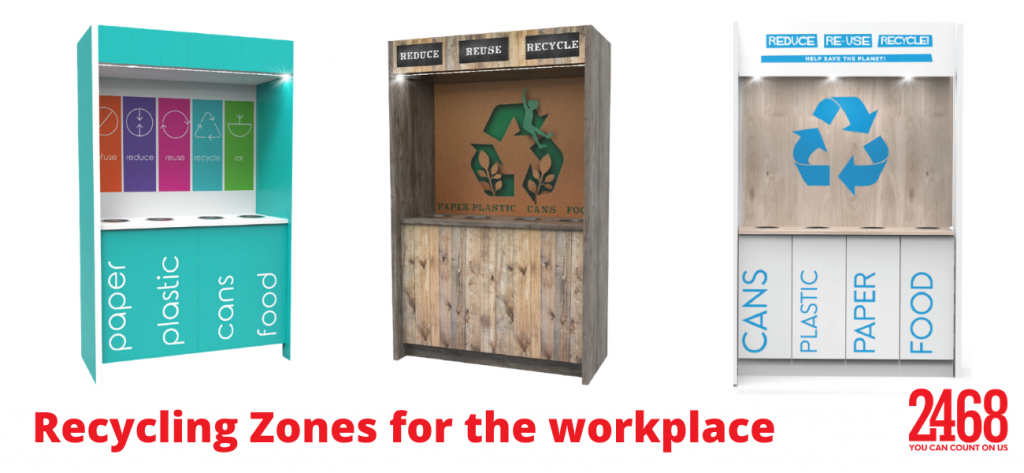In a 2020 Yougov survey, the environment was ranked as the 4th most pressing issue facing the U.K below health, the economy and Brexit. While recycling is one of the most frequently used methods for people to contribute to our planet’s well-being, if it is not done correctly then it can cause more of a hindrance than help to waste collection centres. While many of us may consider recycling to simply be walking up to a bin and throwing something in# and hoping for the best, that isn’t considered best practice. The aim of this blog post is to use tips gathered from a recent article on greenbusinessbureau.com which aims to educate readers on the right and wrong ways to recycle in the workplace.
Prevent Wish-cycling
This is the practice of dropping any old item into a recycling bin and hoping that it gets recycled. This isn’t a malicious act and the thought is there but in reality if the item isn’t recyclable, the action causes more harm than good. Items that can’t be recycled may cause harm to people who are sorting the items and can ruin perfectly good batches of recycled products. This falls down to educating your office users on the proper items that should be recycled and what colour bin everything goes in. Examples of office items that can be mistakenly thought to be recyclable are lightbulbs, bubble wrap and shredded paper.
Organizing Recycling in the Workplace
There are numerous different actions one can take in the workplace to prevent not only wish cycling but also any other negative actions towards your recycling effort.
The first step in organizing recycling is to create awareness in the office by sticking up posters, sending emails or running initiatives. This not only creates awareness but also creates a buzz about recycling.
Other useful techniques to follow include:
- Conducting a waste audit: this involves taking note of any items being thrown away and identifying which ones can be recycled.
- Make room in your budget for recycling.
- Install separate recycling bins and train staff on what rubbish goes where.
- Collect feedback from employees and assess the success of the initiative.
Staff Participation
This is one of the most important factors in any successful recycling initiative. Without full staff involvement mistakes and bad habits such as wish-cycling may still occur. Greenbusinessbureau suggests different ideas to drive participation such as:
- Friendly competitions i.e. free throw games with recyclable bottles and cans.
- Reward winners of recycling themed overlays with e-gift cards or time off.
- Set monthly goals as a group for the whole office to try and achieve.
- Encourage staff to share best practices or knowledge on internal platforms like Yammer or Workplace.

Benefits of Recycling in the Workplace
Recycling is a key activity that any lay person can take part in to help our earth and environment. However, there are also many benefits for any organisation to reap if they can implement a successful recycling programme. One major benefit is that it should lower your overall amount of rubbish therefore resulting in lower disposal costs for the company. There are also numerous green initiatives and incentives for companies to avail of such as The Green Business Certification. Another major benefit is the image that being a green company associates with your brand. It will provide your brand with a more positive company and community image. It will also help bring your employees and staff closer together as it is another project they can work on that will provide them with a sense of real meaning and they can use to make a positive difference to the world.
In today’s society where employers are trying to encourage their staff to come back to the office some of these initiatives can be overlooked so it is important to have a plan in place and take action from the offset.




